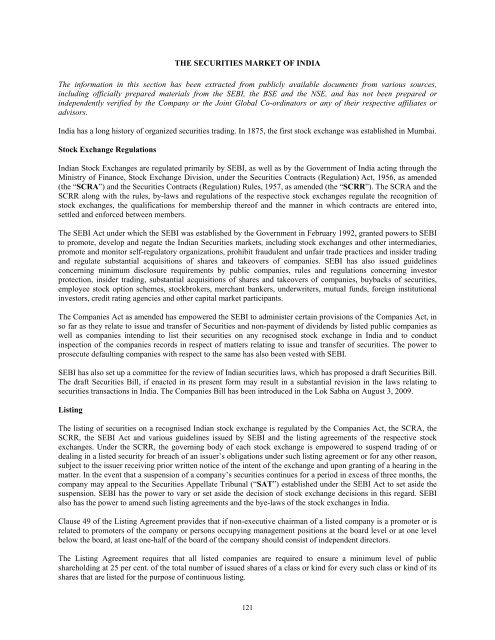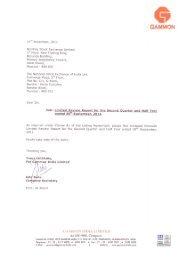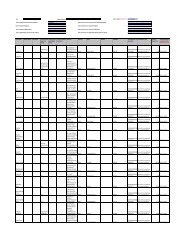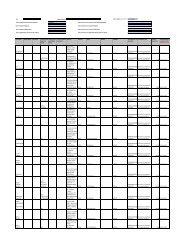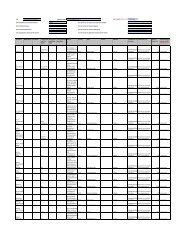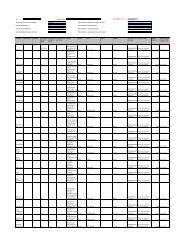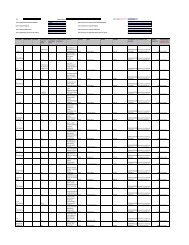GAMMON INDIA LIMITED
GAMMON INDIA LIMITED
GAMMON INDIA LIMITED
Create successful ePaper yourself
Turn your PDF publications into a flip-book with our unique Google optimized e-Paper software.
THE SECURITIES MARKET OF <strong>INDIA</strong><br />
The information in this section has been extracted from publicly available documents from various sources,<br />
including officially prepared materials from the SEBI, the BSE and the NSE, and has not been prepared or<br />
independently verified by the Company or the Joint Global Co-ordinators or any of their respective affiliates or<br />
advisors.<br />
India has a long history of organized securities trading. In 1875, the first stock exchange was established in Mumbai.<br />
Stock Exchange Regulations<br />
Indian Stock Exchanges are regulated primarily by SEBI, as well as by the Government of India acting through the<br />
Ministry of Finance, Stock Exchange Division, under the Securities Contracts (Regulation) Act, 1956, as amended<br />
(the “SCRA”) and the Securities Contracts (Regulation) Rules, 1957, as amended (the “SCRR”). The SCRA and the<br />
SCRR along with the rules, by-laws and regulations of the respective stock exchanges regulate the recognition of<br />
stock exchanges, the qualifications for membership thereof and the manner in which contracts are entered into,<br />
settled and enforced between members.<br />
The SEBI Act under which the SEBI was established by the Government in February 1992, granted powers to SEBI<br />
to promote, develop and negate the Indian Securities markets, including stock exchanges and other intermediaries,<br />
promote and monitor self-regulatory organizations, prohibit fraudulent and unfair trade practices and insider trading<br />
and regulate substantial acquisitions of shares and takeovers of companies. SEBI has also issued guidelines<br />
concerning minimum disclosure requirements by public companies, rules and regulations concerning investor<br />
protection, insider trading, substantial acquisitions of shares and takeovers of companies, buybacks of securities,<br />
employee stock option schemes, stockbrokers, merchant bankers, underwriters, mutual funds, foreign institutional<br />
investors, credit rating agencies and other capital market participants.<br />
The Companies Act as amended has empowered the SEBI to administer certain provisions of the Companies Act, in<br />
so far as they relate to issue and transfer of Securities and non-payment of dividends by listed public companies as<br />
well as companies intending to list their securities on any recognised stock exchange in India and to conduct<br />
inspection of the companies records in respect of matters relating to issue and transfer of securities. The power to<br />
prosecute defaulting companies with respect to the same has also been vested with SEBI.<br />
SEBI has also set up a committee for the review of Indian securities laws, which has proposed a draft Securities Bill.<br />
The draft Securities Bill, if enacted in its present form may result in a substantial revision in the laws relating to<br />
securities transactions in India. The Companies Bill has been introduced in the Lok Sabha on August 3, 2009.<br />
Listing<br />
The listing of securities on a recognised Indian stock exchange is regulated by the Companies Act, the SCRA, the<br />
SCRR, the SEBI Act and various guidelines issued by SEBI and the listing agreements of the respective stock<br />
exchanges. Under the SCRR, the governing body of each stock exchange is empowered to suspend trading of or<br />
dealing in a listed security for breach of an issuer’s obligations under such listing agreement or for any other reason,<br />
subject to the issuer receiving prior written notice of the intent of the exchange and upon granting of a hearing in the<br />
matter. In the event that a suspension of a company’s securities continues for a period in excess of three months, the<br />
company may appeal to the Securities Appellate Tribunal (“SAT”) established under the SEBI Act to set aside the<br />
suspension. SEBI has the power to vary or set aside the decision of stock exchange decisions in this regard. SEBI<br />
also has the power to amend such listing agreements and the bye-laws of the stock exchanges in India.<br />
Clause 49 of the Listing Agreement provides that if non-executive chairman of a listed company is a promoter or is<br />
related to promoters of the company or persons occupying management positions at the board level or at one level<br />
below the board, at least one-half of the board of the company should consist of independent directors.<br />
The Listing Agreement requires that all listed companies are required to ensure a minimum level of public<br />
shareholding at 25 per cent. of the total number of issued shares of a class or kind for every such class or kind of its<br />
shares that are listed for the purpose of continuous listing.<br />
121


